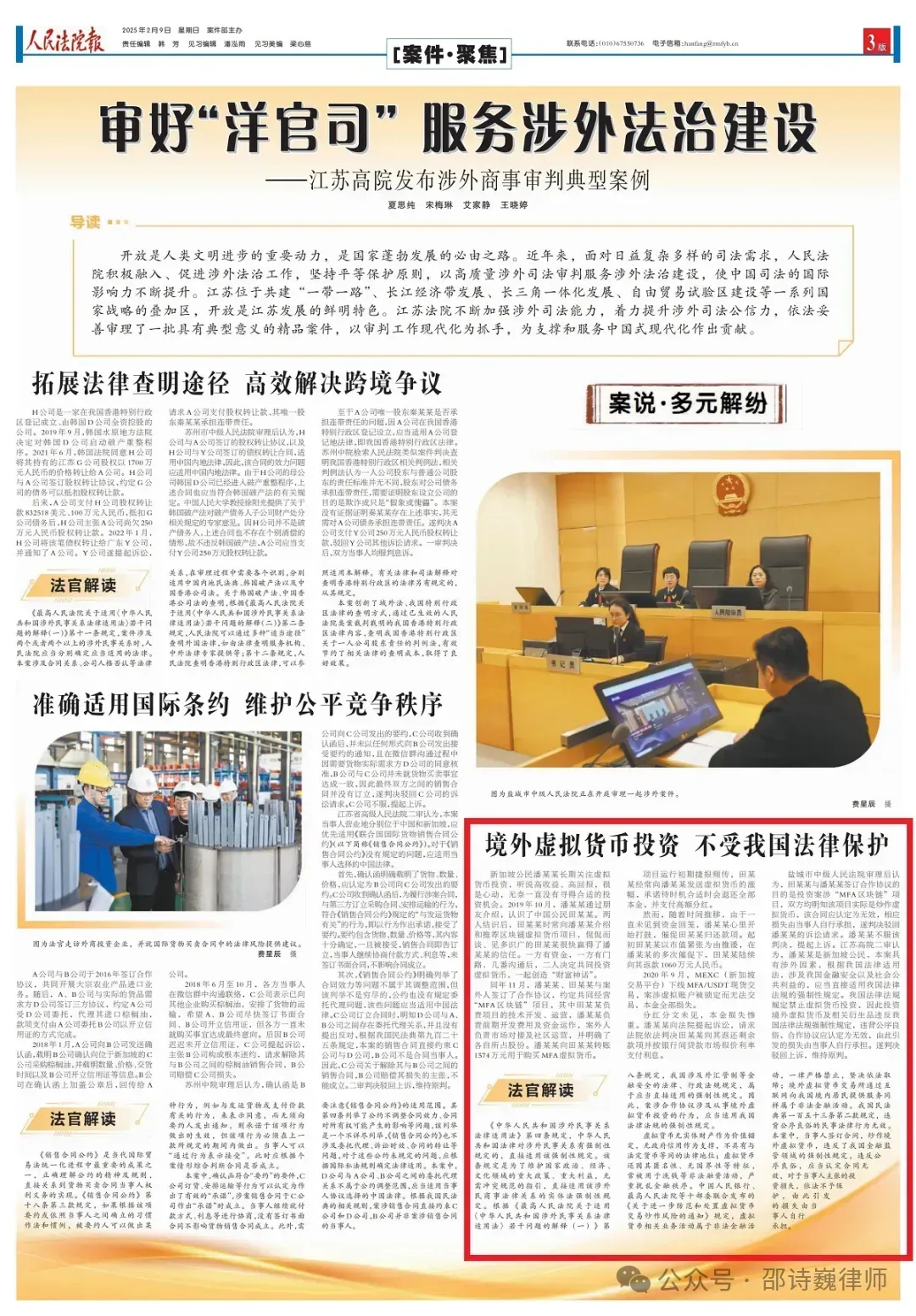
On February 9, 2025, the People's Court Daily published a case: "Overseas virtual currency investment is not protected by Chinese law." This case is one of the typical foreign-related commercial trial cases released by the Jiangsu Higher People's Court.
However, in sharp contrast to this legal warning are the myths of getting rich quickly that are not uncommon in the cryptocurrency circle. A few days ago, Lawyer Shao heard from a friend that his friend had 100,000 U on Binance and entrusted others to operate the contract, earning the equivalent of 30 million RMB in a month. Although this kind of thing doesn't sound uncommon in the cryptocurrency circle, I still can't help but sigh that this person's luck is really enviable, tut tut.
The threshold for investing in the cryptocurrency industry is relatively high. For ordinary people, entrusting financial management and investing on behalf of others are almost common ways to participate in investment. As the saying goes, "Professional matters should be left to professionals." So, what does this guiding case issued by the court mean to friends who speculate in cryptocurrencies?
This article will take this case as a starting point for a detailed interpretation and explore whether ordinary people can still invest in virtual currencies? If the investment is lost, can the investment be recovered through a lawsuit? At the same time, the article will also provide pre-risk prevention and in-process response strategies for virtual currency investment for your reference.
Author: Lawyer Shao Shiwei
1
A lawsuit lasted for 4 years
The 5 million investment funds were still not recovered.
[Basic case]
Pan (Singaporean citizen) was very interested in the high returns of virtual currency investment, but he had not found a suitable investment opportunity. In October 2019, Pan met Tian (Chinese citizen) through a friend. The two met and had a good chat. Tian often introduced blockchain virtual currency projects to Pan. Tian, who was eloquent and knowledgeable, quickly won Pan's trust, so they decided to invest in virtual currency together and create a "wealth myth" together.
In November of the same year, Pan and Tian signed a cooperation agreement with a third party, agreeing to jointly operate the "MFA Blockchain" project, with Tian responsible for technical development and operation, Pan responsible for pre-development costs and capital operation, and the third party responsible for market connection and community operation, and clearly defining their respective shares. Pan transferred 15.74 million yuan to Tian to purchase MFA virtual currency.
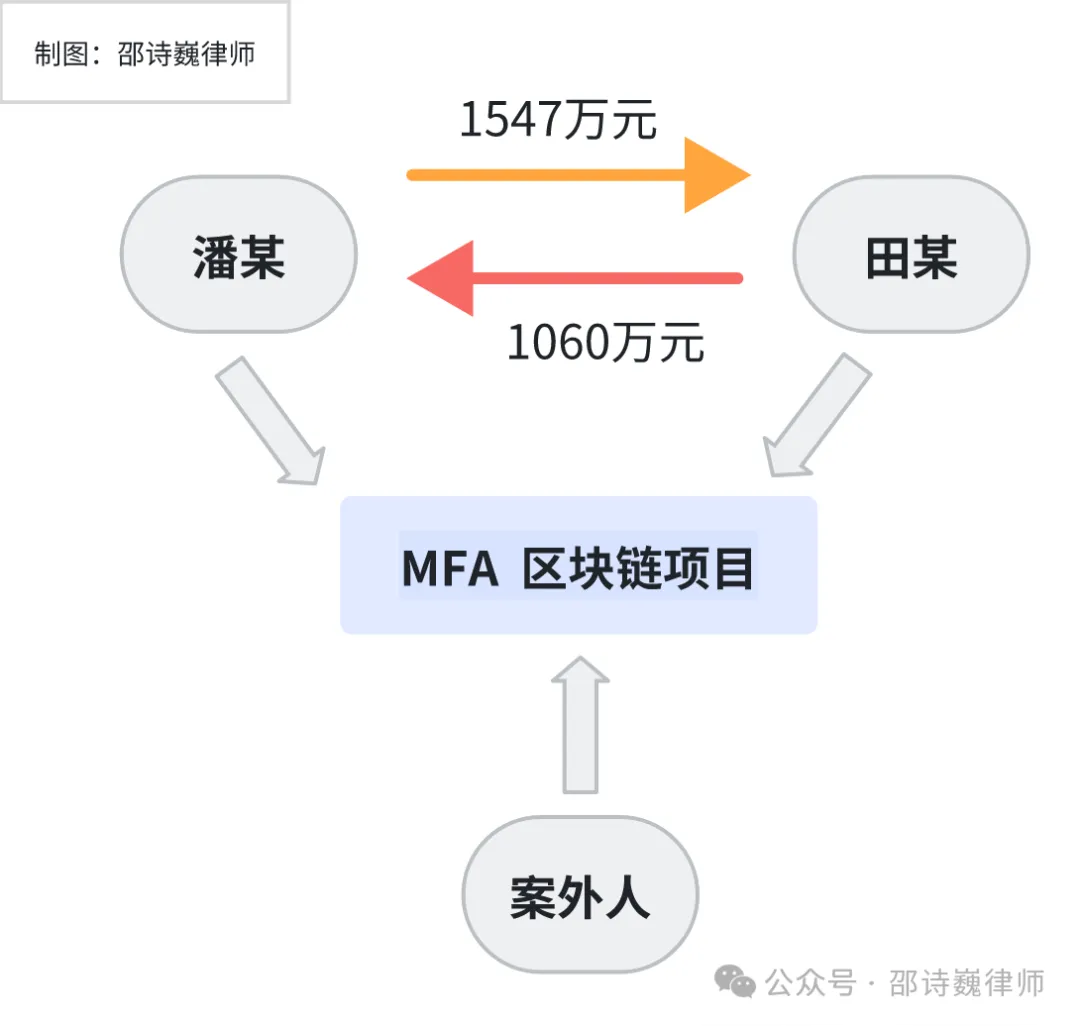
In the early stages of the project, good news came frequently. Tian often sent Pan the increase in the value of virtual currency, promising to return all the principal and pay high dividends when the time was right.
However, as time went by, Pan began to worry because he had not seen the funds returned, and urged Tian to return the money. At first, Tian evaded the issue by saying that the market value was tight, but under Pan's repeated urging, Tian gradually returned 10.6 million yuan to him.
In September 2020, MEXC (Singapore trading platform) shut down MFA/USDT spot trading. The virtual account involved in the case was locked and could not be traded, and the principal was completely lost . No dividends were received, and the principal was severely damaged. Pan filed a lawsuit with the court, requesting the court to order Tian to return the remaining funds to him in accordance with the law.
[Court opinion]
This case was heard by two courts, Yancheng Intermediate People's Court and Jiangsu Higher People's Court.
The Yancheng Intermediate Court held that:
The purpose of their cooperation was to invest in the "MFA Blockchain" project. The court held that both parties knew that they were speculating in virtual currency, the contract was invalid, and the losses were borne by themselves. The court rejected Pan's request for the return of the investment.
The Jiangsu High Court held that:
Mr. Pan is a citizen of Singapore. This case involves foreign elements. According to the Law on the Application of Laws of my country, if it involves my country's financial security and social public interests, the mandatory provisions of my country's laws and regulations shall be directly applied. my country's laws and regulations prohibit virtual currency investment. Therefore, investing in overseas virtual currencies and related derivatives violates the mandatory provisions of my country's laws and regulations and violates public order and good customs. The cooperation agreement should be deemed invalid, and the losses caused by it shall be borne by the parties themselves. The court therefore dismissed the appeal and upheld the original judgment.
2
Lawyer Shao Shiwei's Interpretation
People in the cryptocurrency world should all know about Yancheng, Jiangsu. The famous PlusToken pyramid scheme case, the largest case in the cryptocurrency world, was sentenced here. In 2019, Yancheng, Jiangsu confiscated 314,200 bitcoins. How much are they worth now?
Oh, we’ve strayed off topic, let’s get back to this civil case.
The courts of both instances did not support the claims of Singaporean citizen Pan. After four years of litigation, the 5 million investment funds were still not recovered.
Looking across the country, there are actually many cases involving virtual currency entrusted investment. Lawyer Shao's team has also come into contact with many cases with different judgments and different judges' trial styles in different regions of the country. Regarding whether the money entrusted for virtual currency investment should be returned, generally speaking, it is nothing more than whether the contract is valid, how to divide the responsibilities of the parties, and how the money should be judged .
But why was this case listed as a typical case? It is probably because of the foreign-related identity of one of the parties involved, Pan. After all, judging from official reports, there is no doubt or complexity in this case.
Friends in the cryptocurrency circle who have consulted a lawyer or have looked up relevant legal provisions should know that according to relevant domestic policies, holding virtual currency is not illegal in my country, but investing and trading in virtual currency is at your own risk. So what are the consequences of taking your own risks? Lawyer Shao combined this case with a question-and-answer format to give you a detailed analysis:
Q: Can virtual currency investment and trading be conducted in China ?
Answer: If an institution is the main body receiving money from users, it will be deemed as illegal financial activity and the business behavior will have a great risk of criminal involvement ; if it is an individual retail investment, then the risk is borne by the individual and the contract will generally be deemed invalid by the court.
Question: When investing in virtual currency in China , one bears the risks at one’s own risk. Does this mean that there is no way to protect one’s rights if one suffers investment losses ?
Answer: Assuming the risk yourself does not mean that you cannot get your money back . This involves the issue of division of responsibilities. If the court determines that the investor is largely at fault, then the amount of investment to be recovered will be relatively small or even non-existent. However, if the court believes that the investing agent also has certain fault liability, then when deciding whether the investing agent should return the investment, the court will naturally consider the proportion of the amount that the investing agent should return.
As for how the court determines the responsibilities of each party in the final judgment, we need to combine the facts and evidence of the case to explain our views during the trial. In the absence of relevant evidence, as an investor, it is very important to have a reasonable explanation to prove the investor's claim. At this time, professional lawyers who are deeply involved in the web3 industry need to combine the transaction practices and industry habits of the blockchain industry to "popularize science" to the judge. After all, in most cases, we cannot expect that the judge who hears your case happens to understand you.
Question: If I invest in virtual currency in China and lose money, can I sue in court to get my investment back ?
A: It should be noted that the current domestic overall attitude towards virtual currency trading and investment is negative. This can be seen not only from the relevant policies such as the 94 Announcement and the 924 Notice, but also from the judicial practice level and various official media reports.


However, judging from the cases of this type handled by our Mankiw Law Firm, investors’ requests for refunds are not necessarily lost as in the guiding case of the Jiangsu Court mentioned in this article. From a practical point of view, there is still room for success.
For example, the following are two cases recently handled by lawyer Mao Jiehao from our commercial team. One case was judged and the other was mediated, both of which achieved ideal results. This is not easy given the current domestic policy background that is generally unfriendly to cryptocurrency regulation.
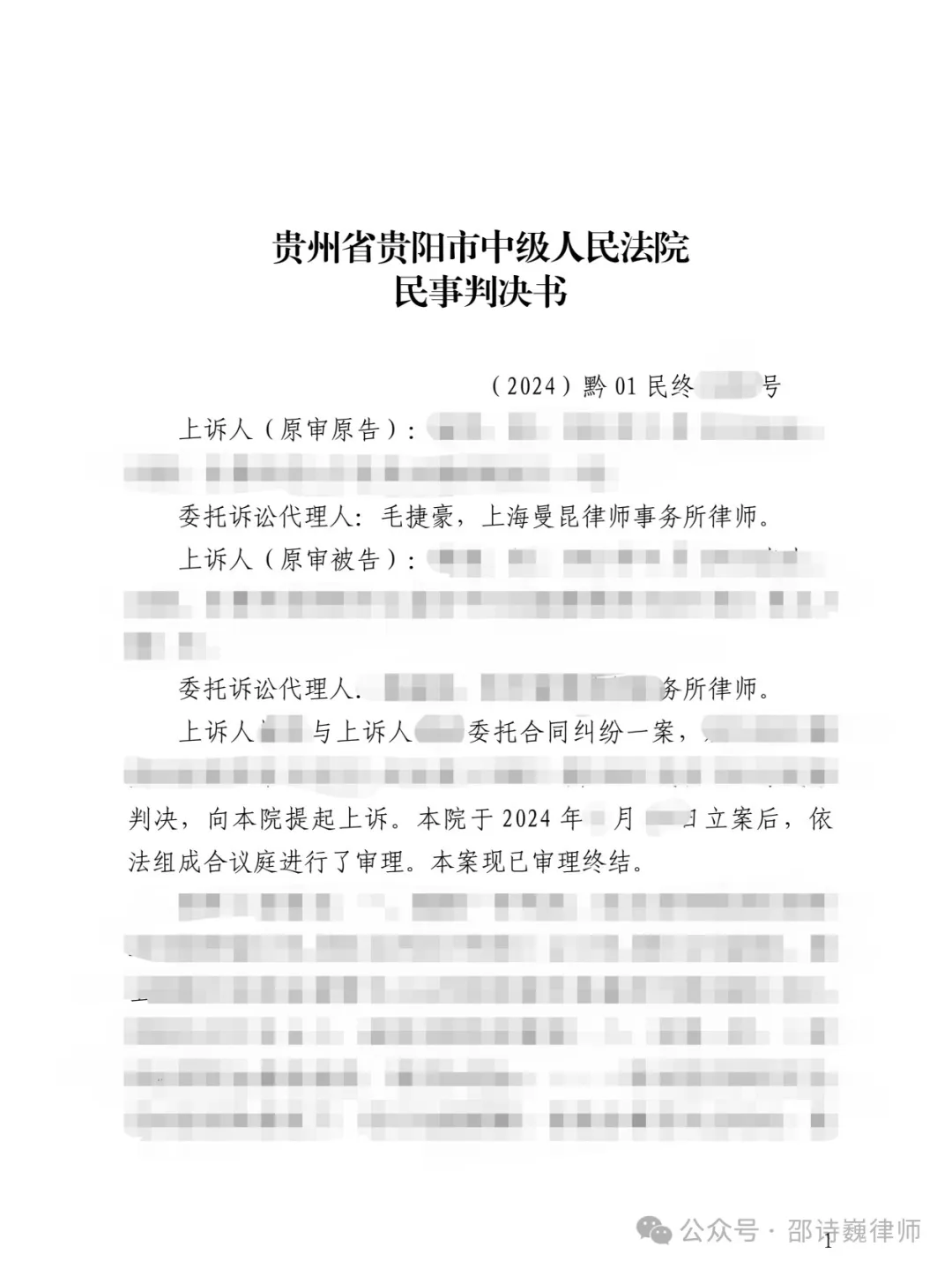
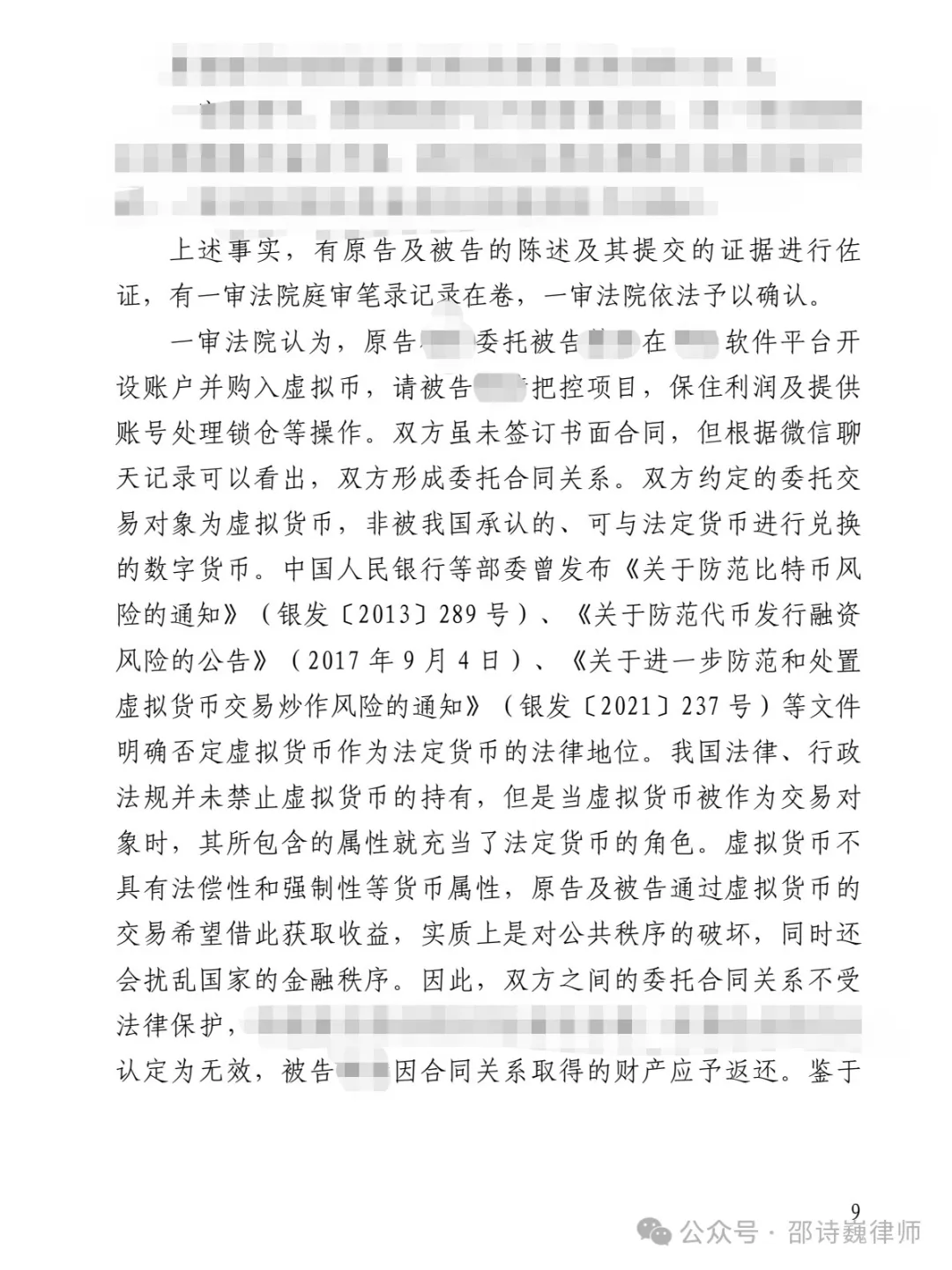
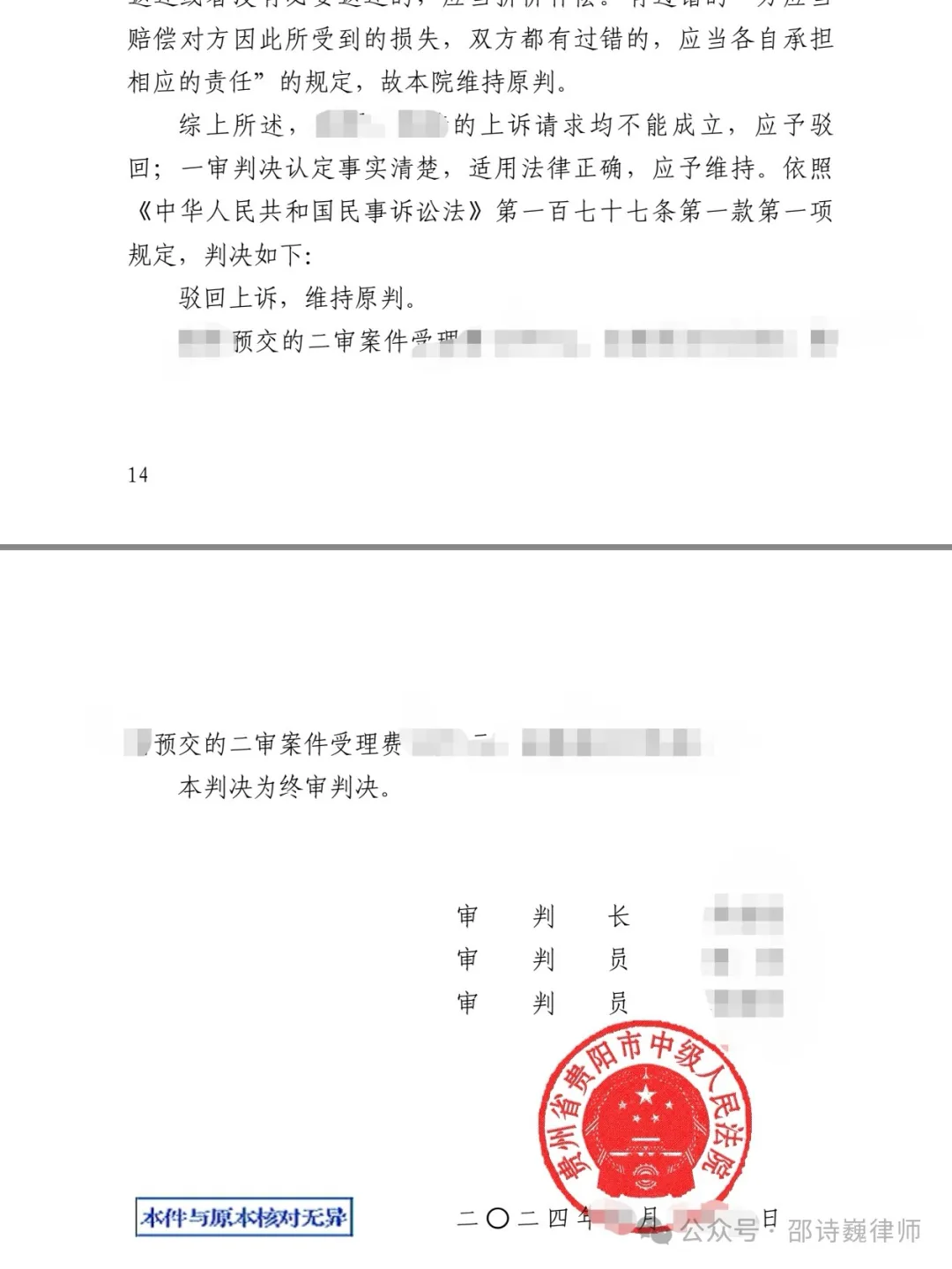
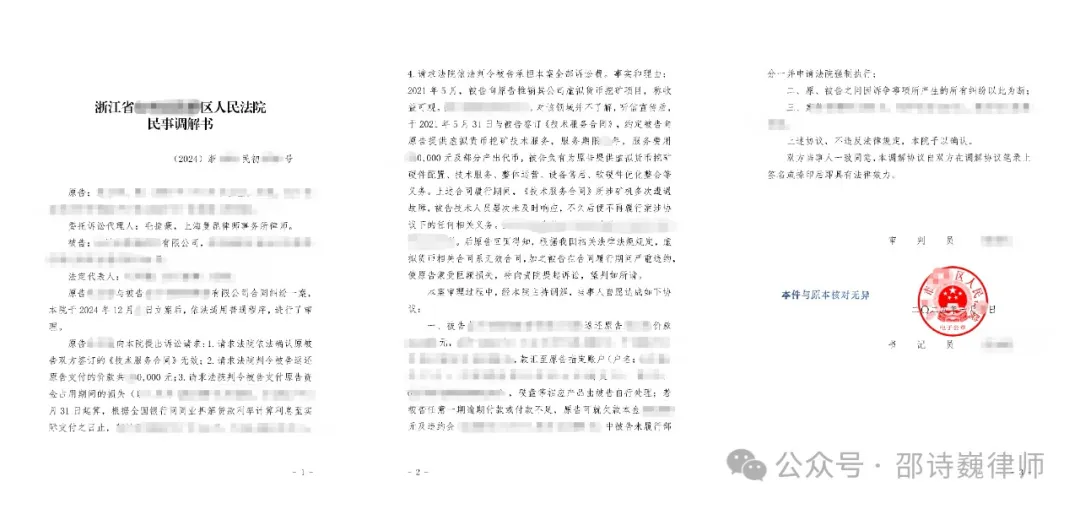
Q: Since the domestic policy environment is not friendly to cryptocurrency investment, is “going overseas” a good way to save the country in a roundabout way?
Answer: You can go overseas, but what is more critical is the prior agreement on the jurisdiction for dispute resolution.
In this case of Yancheng Court, since the investor Pan is a Singaporean citizen, this case has foreign-related factors, but why did Pan choose to sue in a domestic court? Pan's situation may be as follows (there is no public information on this point, only guessing based on practical experience). First, the agreement did not clearly stipulate the jurisdiction of the court, and the local court in Singapore did not accept this case, so he could only choose to go to the Yancheng Court where the defendant resided, which was easier to file a case. Second, Pan thought that if he sued Tian in Singapore, it would be difficult to execute Tian's property in the future.
For example, Singapore and Hong Kong are indeed more friendly to blockchain and cryptocurrency than mainland China. If the lawsuit can be heard in these places, Pan's investment may have a chance to be recovered . As for the execution of overseas judgments, you can refer to the video below.
In practice, overseas adjudications will certainly be more cumbersome in terms of procedures, but no matter how cumbersome the procedures are, it is better than getting a final judgment that you lose the case.
It is important to remind you that the jurisdiction of a litigation/arbitration case is not something that the parties can choose at will. It requires a clear agreement between the two parties. Therefore, experienced lawyers will help the parties to anticipate all the problems that may arise before the two parties decide to cooperate, and reasonably agree on the jurisdiction for future dispute resolution based on the actual situation of the cooperation project between the two parties.
Unfortunately, most people don’t think of hiring a lawyer until a dispute occurs, which puts them in a somewhat passive position.
========This is a dividing line========
From the perspective of a legal professional, this case in this article has some interesting points. Let's take a look at the Provincial High Court's views on this case:
The Jiangsu High Court held that: Pan is a Singaporean citizen and this case involves foreign elements. According to the Law on the Application of Laws of my country, if it involves my country's financial security and social public interests, the mandatory provisions of my country's laws and regulations should be directly applied. my country's laws and regulations prohibit virtual currency investment. Therefore, investing in overseas virtual currencies and related derivatives violates the mandatory provisions of my country's laws and regulations and violates public order and good customs. The cooperation agreement should be deemed invalid, and the losses caused by it shall be borne by the parties themselves.
This is probably because Pan or his agent said during the appeal that "this case has foreign-related factors, so the relevant laws of our country should not be applied to judge it." Therefore, the Jiangsu High Court made the above opinion. However, Lawyer Shao believes that there are still many issues worth pondering about the High Court's opinion. Let's take a look at the "Judge's Interpretation" section:
The judge mentioned that according to the "Interpretation of the Law on the Application of Law (I)", my country's laws and administrative regulations concerning financial security such as foreign exchange control are mandatory provisions that should be directly applied.
——However, the following text goes on to say, "The cooperation agreement in question involves engaging in overseas virtual currency investment ." This ambiguous expression precisely shows that the investment funds of Singaporean citizen Pan are overseas money and do not involve foreign exchange controls. Otherwise, if such a large amount of money involves disguised foreign exchange trading and is listed as a guiding case, it would be impossible for it to remain silent.
Therefore, there is obviously insufficient basis for applying the "Interpretation (I) of the Law on the Application of Laws" to this case.
The judge mentioned that the Notice on Further Preventing and Dealing with the Risks of Virtual Currency Trading Speculation (924 Notice) stipulates that virtual currency-related business activities are illegal financial activities and are strictly prohibited and resolutely banned in accordance with the law; overseas virtual currency exchanges providing services to residents in my country through the Internet are also illegal financial activities. This case violated the mandatory regulations in my country's financial supervision field.
——Perhaps considering that the application of the "Interpretation of the Law on the Application of Laws" was insufficient, the 924 Notice was cited to strengthen the reasoning. However, the dispute in this case occurred in September 2020. What does it have to do with the 924 Notice issued in September 2021? Moreover, in terms of the effectiveness level, the 924 Notice is at most a normative document, and it does not have retroactive effect.
Although according to the 924 Notice, virtual currency-related businesses are considered illegal financial activities, this restriction only applies to the behavior of institutions such as virtual currency exchanges. Although individual cryptocurrency speculation is not encouraged in my country, it is not prohibited either. The personal investment and cryptocurrency speculation of Pan and Tian has not risen to the level of "illegal financial activities."
3
Remember the past, it is a lesson for the future
That’s all I have to say. For friends in the cryptocurrency circle, it is more important to learn from past cases of others and prevent their own legal risks. So at the end of this article, Lawyer Shao also gives you some suggestions:
1. Before cooperating
It is important to be aware of signing a contract and to make sure the rights and obligations of both parties are clearly defined in writing, and to include foreign jurisdiction clauses in the contract to provide clear guidance for possible dispute resolution.
If it is possible to agree on overseas jurisdiction in written form, priority should be given to regions with a mature judicial environment and rich precedents, such as Hong Kong and Singapore, in order to better safeguard one's own rights and interests.
2. When a dispute occurs
If there is no written agreement on the judicial jurisdiction, it is necessary to select an institution that can handle the case based on the actual circumstances of the case and formulate a reasonable litigation strategy.
If the lawsuit can only be filed domestically, it does not mean that there is no chance of winning. It is just that the relevant domestic laws and regulations are not yet perfect, and the judgment results are uncertain, and different judgments for the same case are common.
3. Choose a professional lawyer
If you can consult professional lawyers in the cryptocurrency field before launching the project and do a good job of risk control, such as drafting the details of the cooperation terms, choosing the jurisdiction, determining the applicable law, etc., you can avoid many detours later. For cases where disputes have already occurred, the industry experience of Web3 lawyers is also crucial for formulating appropriate litigation strategies. Lawyers need to comprehensively consider the background of the case, study the legal norms and guidelines for currency-related cases in different countries or regions, understand the local judicial environment and the attitude of regulatory authorities towards cryptocurrencies, and study and judge the handling methods of similar cases in the region in the past, so as to formulate the best litigation strategy.











